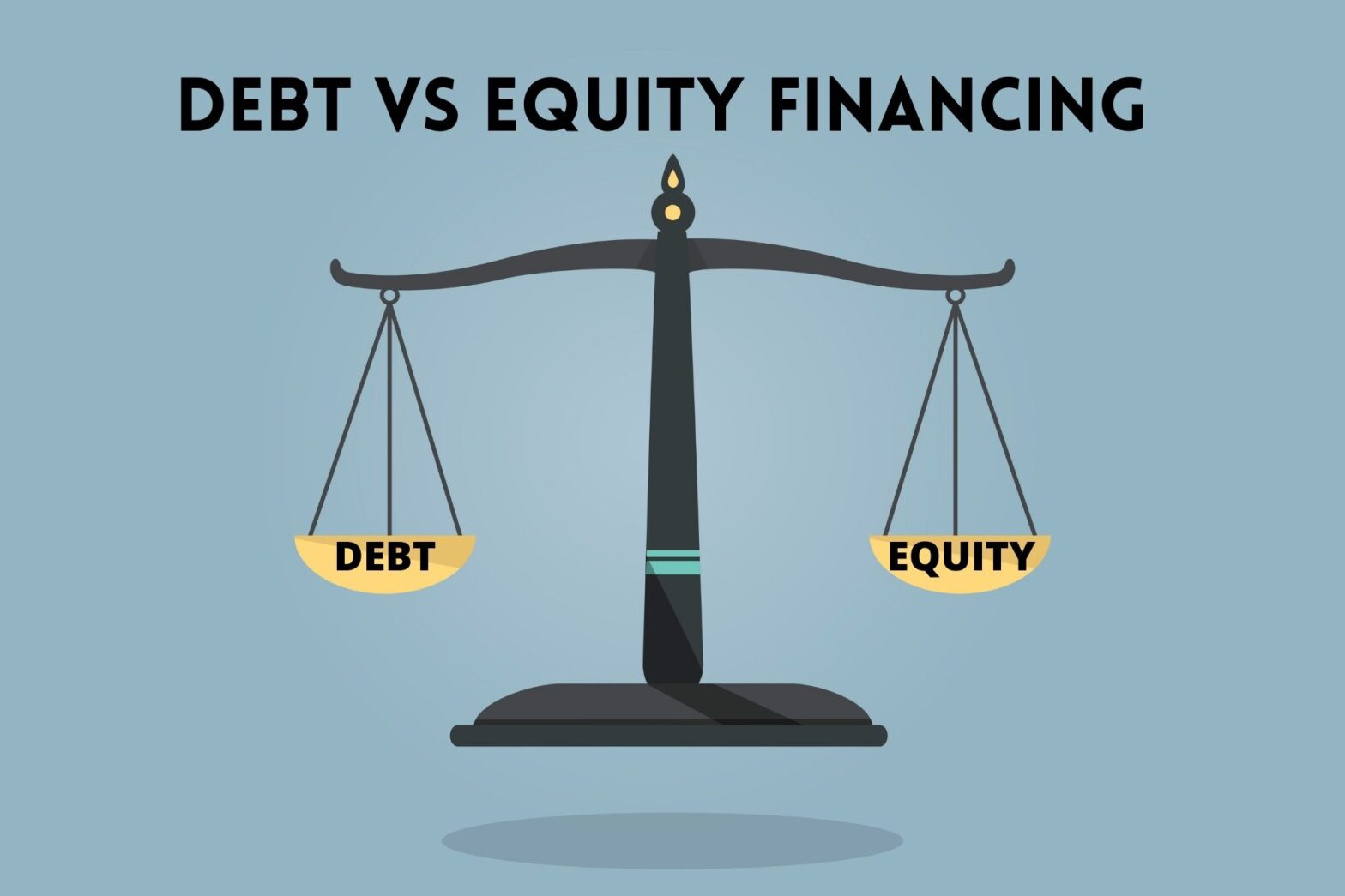When it comes to financing your business, you have two primary options: debt & equity financing. Each has its own advantages and disadvantages, and understanding these can help you make the best decision for your business. In this blog, we will explore the differences between debt and equity financing, their respective benefits and drawbacks, and factors to consider when choosing between the two.
What is Debt Financing?
Debt financing involves borrowing money that you will need to repay with interest. This can come in the form of loans from banks, credit unions, or other financial institutions. The key characteristic of debt financing is that you retain full ownership of your business.
Advantages of Debt Financing:
- Retain Ownership: With debt financing, you don’t give up any ownership of your business. You retain full control over your operations and decisions.
- Tax Deductible: The interest payments on your debt can be deducted from your taxable income, providing a tax benefit.
- Predictable Payments: Debt financing typically involves fixed repayment schedules, making it easier to plan your financial future.
Disadvantages of Debt Financing:
- Repayment Obligations: Regardless of your business performance, you are obligated to repay the loan with interest.
- Credit Impact: Excessive debt can affect your credit rating and limit your ability to obtain additional financing in the future.
- Collateral Requirements: Many lenders require collateral, which can be a risk if your business is unable to repay the loan.
What is Equity Financing?
Equity financing involves raising capital by selling shares of your business to investors. This means giving up a portion of ownership and, potentially, some control over your business. Investors are rewarded with a share of the profits, but there are no repayment obligations.
Advantages of Equity Financing:
- No Repayment Obligation: Unlike debt financing, you don’t have to repay equity investors. They take on the risk and are compensated through dividends and appreciation in share value.
- Additional Resources: Investors often bring valuable expertise, contacts, and experience to your business, which can aid in growth and development.
- Less Risk: Without the burden of debt repayment, your business may have greater financial flexibility.
Disadvantages of Equity Financing:
- Ownership Dilution: You will have to give up a portion of ownership and, consequently, a share of the profits.
- Potential for Conflict: With more stakeholders, there can be disagreements about the direction and management of the business.
- Profit Sharing: A portion of your profits will go to shareholders, which might be substantial if your business becomes very successful.
Choosing Between Debt and Equity Financing
When deciding between debt & equity financing, consider the following factors:
- Control: If retaining control of your business is crucial, debt financing might be the better option.
- Risk Tolerance: Consider how much financial risk you’re willing to take. Equity financing spreads the risk among investors, while debt financing places the burden on you.
- Growth Stage: Startups and businesses in early growth stages might find equity financing more accessible and beneficial, while established businesses with steady cash flow might prefer debt financing.
- Cost: Calculate the total cost of each financing option, including interest rates for debt and potential profit sharing for equity.
- Financial Health: Assess your current financial health. If you have a strong balance sheet and predictable cash flows, debt financing could be a viable option.
Conclusion
Both debt & equity financing offer distinct advantages and disadvantages. The best choice depends on your specific business needs, goals, and financial situation. By understanding the implications of each financing method, you can make an informed decision that supports the long-term success of your business.
Remember, whether you choose debt or equity financing, it’s crucial to carefully consider the terms and seek professional advice if necessary. Balancing these elements can help you secure the necessary funds while maintaining the health and growth of your business.
In summary, the decision between debt and equity financing should align with your business strategy and financial goals. By evaluating the pros and cons of each option, you can determine which financing method best suits your business needs. Debt & Equity Financing are both viable options, but the right choice will depend on the specific circumstances and goals of your business. Understanding the differences between Debt & Equity Financing will empower you to make the best decision for your company’s future.


